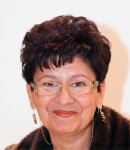|
|
Plenary
Lecture
Romania, Tourism and Culture Major Drivers
of Regional Attractiveness

Professor Mirela Mazilu
Faculty of Economics and Business Administration
University of Craiova, Romania
Email:
mirelamazilu2004@yahoo.com
Abstract: Tourism has undertaken a vital role in the
development of destinations in the entire world. In most
cases, the culture is a major advantage for the
development of tourism, as well as one of the main
beneficiaries of this evolution. The culture is a major
factor in the attractiveness of most of the
destinations, not only from the tourism point of view,
but also in the attraction of residents and of
investments. In this article, the relation between
tourism and culture is analyzed, as well as the manner
in which they have become major drivers of regional
attractiveness and competitiveness.
Culture and tourism have a reciprocal beneficial
relationship, which can consolidate the impact of
attractiveness and competitiveness of the regions and
the countries in their development. Culture is a more
and more important element of the tourist product,
which, also, creates distinctively on an agglomerated
market, at a world level, new metamorphoses of the
local, regional and national tourist product. At the
same time, tourism offers a very important means of
consolidation of culture and the creation of incomes
which can support and consolidate the cultural heritage,
the cultural production and creativeness. The creation
of a strong relationship between tourism and culture can
help new destinations become themselves more attractive
and more competitive as places to live, to visit and to
work or to invest in their sustainable development.
During most of the 21th century, tourism and culture
were viewed as largely separate aspects of destinations.
Cultural resources were seen as part of the cultural
heritage of destinations, largely related to the
education of the local population and the underpinning
of local or national cultural identities. Tourism, on
the other hand, was largely viewed as a leisure-related
activity separate from everyday life and the culture of
the local population. This gradually changed towards the
end of the century, as the role of cultural assets in
attracting tourists and distinguishing detestations from
one another become more obvious. In particular, from the
1980s onwards "cultural tourism" became viewed as a
major source of economic development for many
destinations.
The cultural tourism may offer alternative sources of
income for the rural localities, cities, areas where the
traditional industries have declined and whose economies
or local communities have suffered. A flourishing
cultural economy may improve the social and economical
status of a city and may positively contribute to the
life of the local communities.
Beyond the traces of the past, the landscapes and the
cultural treasures of Romania, what the traveler or the
cultural tourist discovers is the spirit of the place
he/she visits, the vital energy of the people he/she
meets.
Though strongly attached to their cultural norms and
traditional values, these are special tourist flow
gradually embraced contemporary history, the rapid
processes of modernization of today's world,
globalization and standardization in progress.
Brief Biography of the Speaker:
Mirela Elena
Mazilu is professor of the University of Craiova,
University Centre of Drobeta Turnu Severin, Drobeta
Turnu Severin town, Romania. She has many national and
international researches naming 11 books which were
published as a single author; 4 university manuals
especially in tourism; over 167 articles which were
published in the volumes of the national and
international Congresses, symposiums, conferences and
seminars and also in prestigious magazines with CNCSIS
range and over 194 participations to scientific events.
Also, she published over 44 articles in international
magazines in different fields such as: Sustainable
tourism,European integration, ecology, environment
protection, tourism and 46 articles in national journals
CNCSIS,etc. She has 18 articles published in
International Journals of specialty with ISI range and 2
in Naun Journal.
Her papers are cited in International Data Bases
(42).With multiple preoccupations in the field of
tourism, organizer of 2 Euro-regional fairs of
tourism(with participation Mondial Travel Organization)
and 3 International Conferences(2004,2006,2009) and in
the 4th Conference organized the Special Session
"Sustainable Tourism" in collaboration with WSEAS,
Plenary Lecturer in Conference :Economy, Management and
Transformation 2010 (EMT' 2010) organized by WSEAS,
Chairman in many national and international conferences,
reviewer in 4 Journals of Tourism, coordinator of over
20 research grants, member of doctoral commissions,
winner of many diplomas of excellence on tourism and
prizes for the researches made in tourism, member of
many national(16) and international(22) tourism
organizations (AIEST,CIRET,TIES,SUSTAINABLE
TOURISM,TTRA,REZOTOUR, SOUTHEASTERN EUROPE MOUNTAIN
RESEARCH NETWORK, CEDIMES ,etc.). Also member of
Editorial boards of national and international journals
on tourism, President of 2 NGO, in Tourism.
|
|
